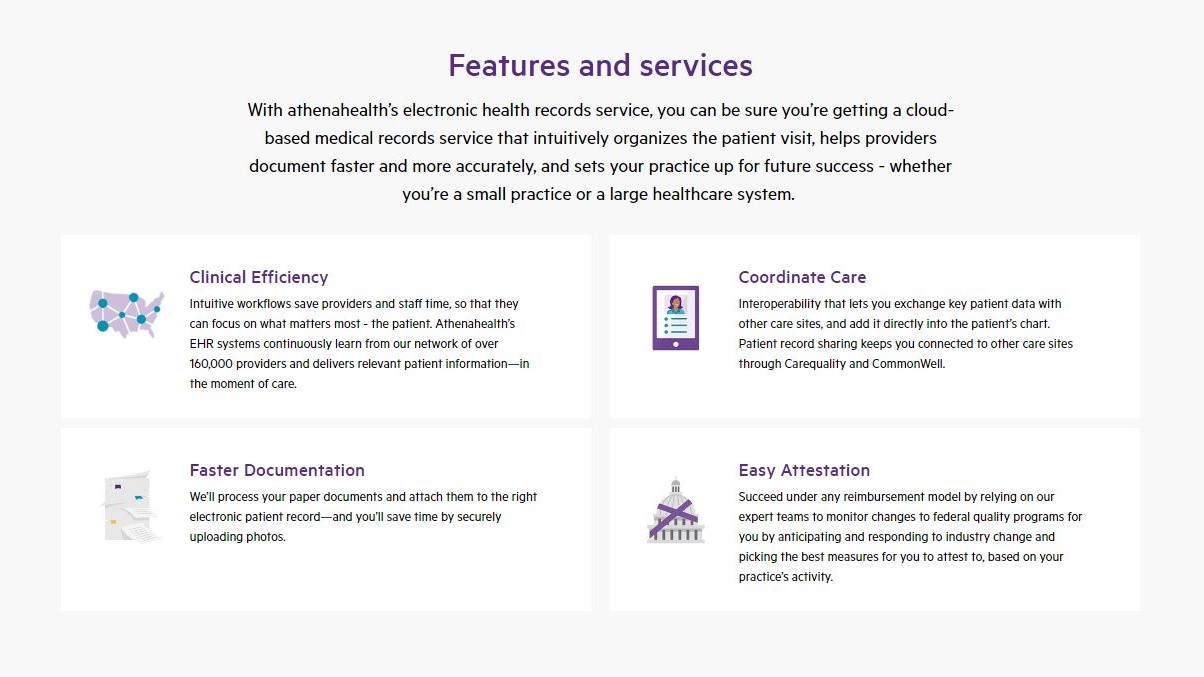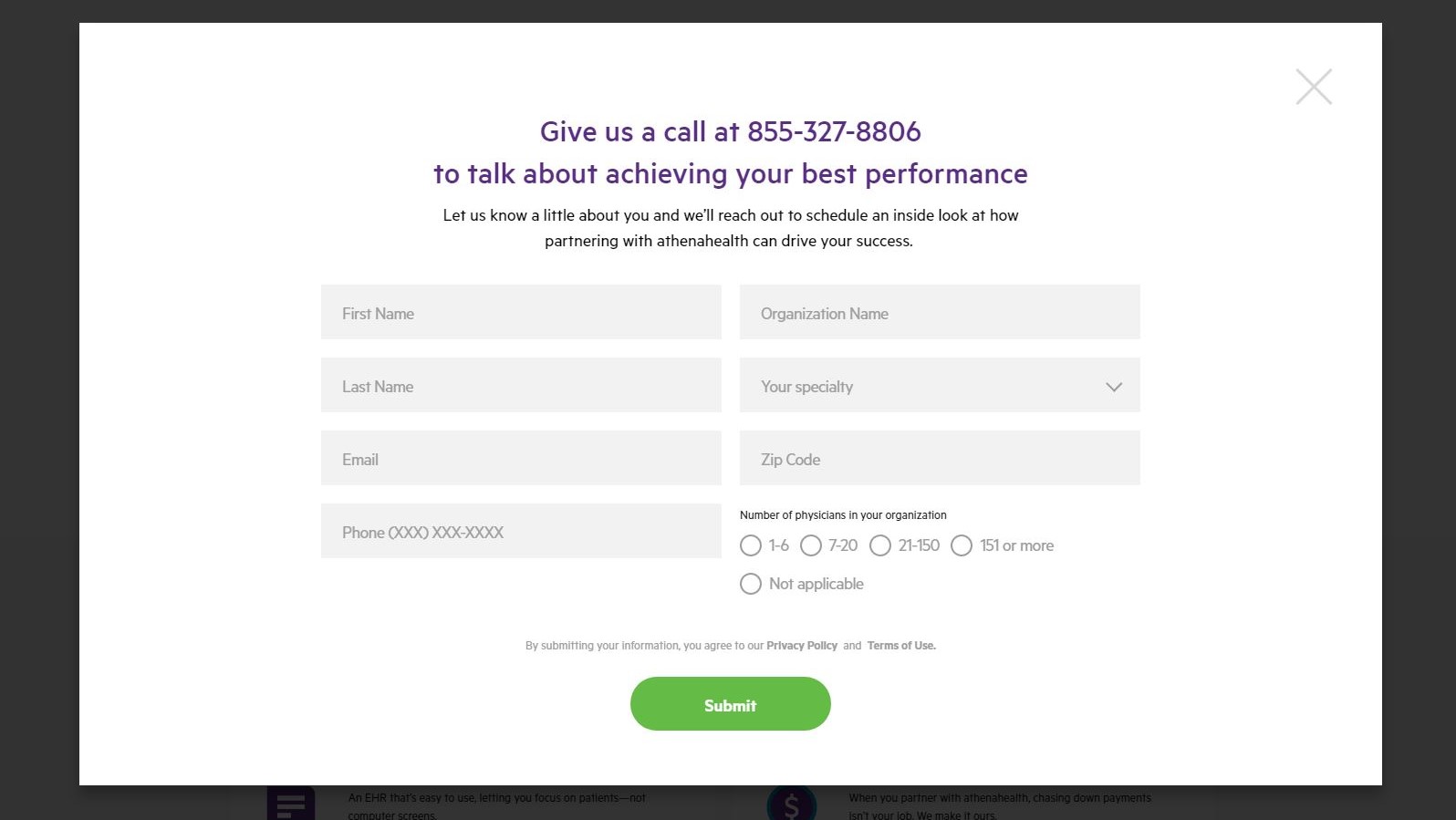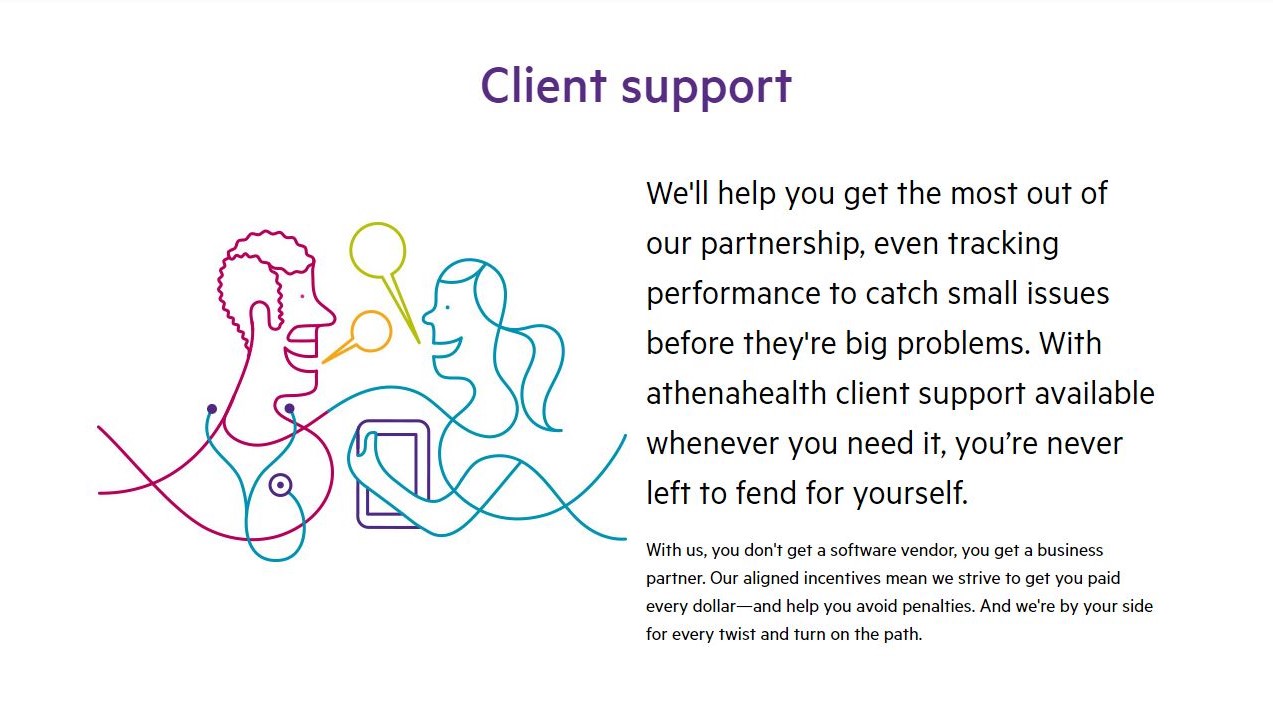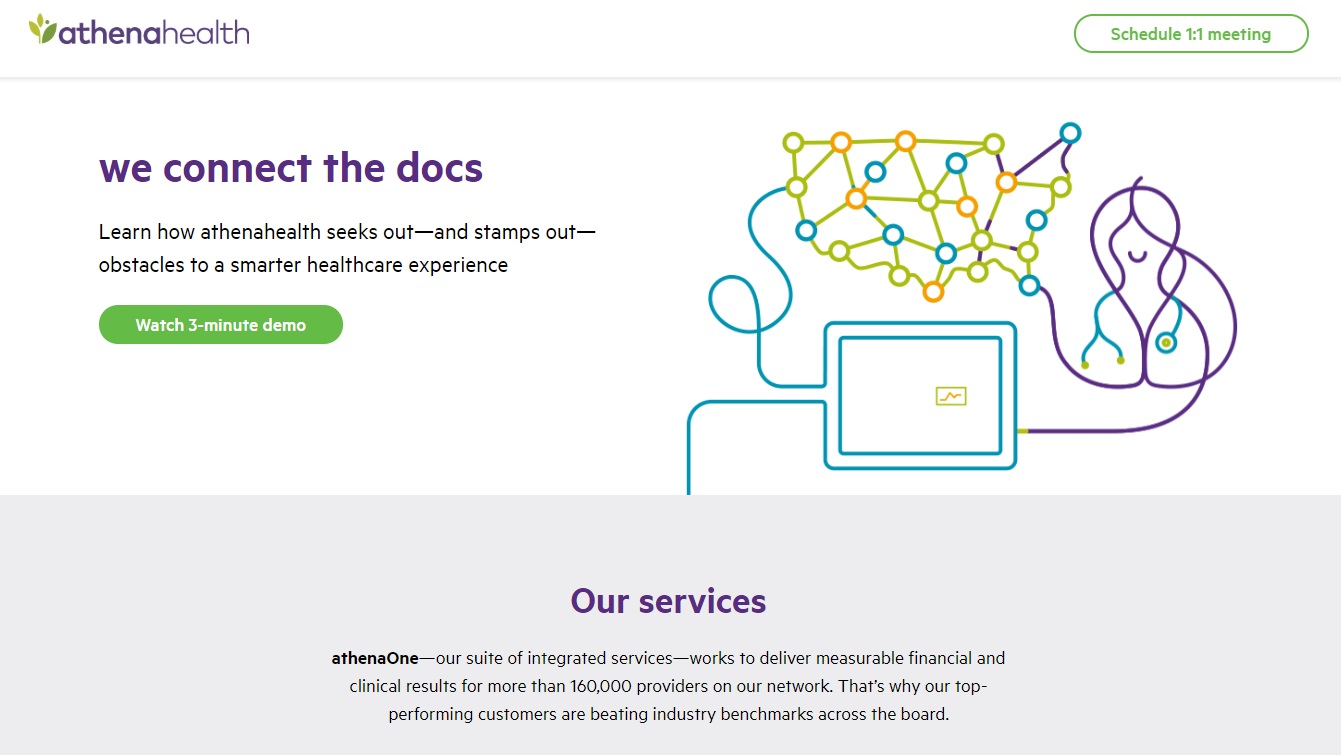TechRadar Verdict
Athenahealth offers an attractive EHR, particularly for physician practices in need of e-prescribing, and we appreciate the available billing component, although it comes with certain annoyances.
Pros
- +
Cloud hosted
- +
Supports voice recognition
- +
Patient appointment schedulin
- +
Available mobile iOS appg
Cons
- -
Opaque pricing
- -
No mobile platform support
- -
No free trial
- -
Billing has shortcomings
Why you can trust TechRadar
Athenahealth is a US based company, started back in 1997, and combined with Virence Health in 2019. At the center of their services is a cloud-based electronic medical record service, known as athenaClinicals (with a quirky spelling that includes a lowercase first letter, and the capital letter in the middle). There is also an emphasis on networking for both exchange of patient information, and benchmarking of outcomes. AthenaHealth’s EHR solution is part of a larger ecosystem of services that includes Patient Engagement, Telehealth, Population Health and more.

Features
The athenaClinicals EHR component has plenty of features to support clinician’s workflow. This includes functions such as appointment scheduling, billing, compliance tracking, charting and e-prescribing. Entering data is performed, in addition to the usual typing via a keyboard, via voice recognition - powered by Nuance, including on a mobile device - although handwriting recognition is not offered. To keep this affordable, it is also certified for meaningful use (which can provide a financial incentive), and is fully HIPAA certified.
There is also support for a patient portal, as well as scheduling of patient appointments. Through this portal, patients can schedule their appointments, get access to practice forms, and pay their co-pays online. This then integrates with the automatic messaging tool, that then sends out automated reminders to patients for their appointments, and bills. Alerts are also messaged for test results that the patient can access in the patient portal. This level of automation is ideal for reducing staff time, and appeals to younger patients that are more likely to engage via this type of experience.
E-prescribing is an area where athenaClinicals shows its evolution and flexibility. E-prescribing is the important process of electronically transmitting prescriptions from prescribers to the patient’s pharmacies. With the current opioid crisis, many states now have instituted, and in some cases require, that prescribers check the database of prescriptions that the patient has received prior to entering the prescription. This state level database is known as a Prescription Drug Monitoring Program (PDMP), and not only does the prescriber in some regions have to check the database for other restricted prescriptions before , which can take some minutes each time, but also that the PDMP was reviewed as part of the prescribing process. Furthermore, this process needs to be documented, a laborious process s the database is logged into, the patient is located, the information is reviewed, and then printed out to be separately scanned into the patient’s EHR. Well, with athenaClinicals this entire process is now streamlined, so the EHR now directly integrates with the PDMP, with the patient’s prior drug information instantly available to the clinician, and equally important that this whole process gets documented in real time- a major timesaver from the previous fragmented process.
There is also support for pediatric use, with support for vaccine management, and custom bundles.
In addition to direct clinical use, athenaClinicals also ties into administrative functions. This includes components that support medical billing, inventory management and physician management. There is also integration with accounting, and with policy management.
Finally, the athenaOne mobile app allows for access to the EHR from anywhere. A shortcoming is that it is only available for iOS, both iPad and iPhone, as we did not find it in the Google Play store.
Drawbacks
No EHR is perfect, and athenaClinicals has its share of shortcomings. For example, some users complain that while the support is quite robust on the initial setup, that subsequently it can take significantly longer to get assistance, and it is not as readily available as on site. This can impact some more advanced tasks, such as clinicians creating templates for notes, and if not done at the outset, the support for this is lacking.
Billing is another service offered through the EHR, and it can certainly be an attractive savings proposition to any practice (and especially a solo practice) to eliminate their costly biller. However, this is not a realistic promise, with practices complaining about too aggressive statements being sent out by athenaClinicals to their patients that turn folks off, little experience with Medicaid billing, and overpriced fees, particularly with lower volume practices that get charged higher percentage collection rates. Another annoyance is the requirement for a physician practice to be limited to certain banks that AthenaHealth approves to receive their payments, and also a delay of a few days for the funds to be received into the account.
Furthermore, users indicate that onboarding is too difficult, and are disappointed at the level of support offered.

Pricing
The pricing for athenaClinicals, similar to other EHR products, is not available on the website. While this makes it a challenge to comparison shop between competing solutions, at least Athenahealth makes it simple as they do provide a link prominently on their website to “Schedule a 1:1 meeting,” to facilitate obtaining the custom pricing. It is indicated that there are no upfront costs, nor monthly premiums, but rather the pricing is based on a percentage of collections.
While there is no free trial, a free demo is offered.

Support
There is a phone number listed, with the phrase to “Call anytime,” but it is not specified if this is for sales, support, or both. The other options for support are limited to only online self help. We found possibilities for training which includes options for webinars, case studies, and whitepapers.
The supported platforms gain access via a web browser. This is the simplest in this day and age, as just about every computer and device with a web browser can then gain access to athenaClinicals, without the need to install the software directly to your desktop. Additionally, no data gets stored locally, as athenaClinicals is a SaaS, with all data hosted in ‘The Cloud.’ Finally, as detailed above, there is an iOS app as well.
Final verdict
Athenahealth offers a robust platform for an EHR, with many useful features. It focuses more on the physician practice market than on larger institutions, with useful features for e-prescribing with PDMP, clinic note writing and accounting. While integrated billing has particular attraction for smaller physician practices that generally do not have a dedicated billing department, the shortcomings should give these practices pause before adopting this platform. On balance, Athenahealth, with their athenaClinicals EHR platform offers a comprehensive and balanced solution to both the clinical, and the business side of a physician practice.
- We've also highlighted the best Electronic Health Record software
Jonas P. DeMuro is a freelance reviewer covering wireless networking hardware.
